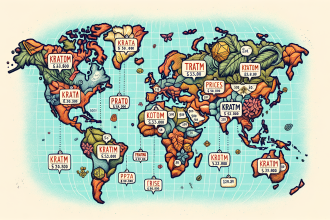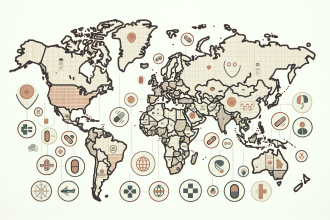In an age where digital footprints are meticulously tracked and personal data is often treated as a commodity, privacy has become a paramount concern for many individuals. The telecom sector, traditionally a hub of connectivity, has also become a battleground for privacy rights. From untraceable calls and encrypted SMS to safe proxies and anonymous browsing, the demand for telecom services that prioritize privacy is surging. This article explores the landscape of privacy-focused telecom services, highlighting the technologies, providers, and best practices that empower users to communicate securely and anonymously.
Why Privacy in Telecom Matters More Than Ever
Every day, billions of calls and messages traverse global networks, often leaving behind metadata trails that can reveal intimate details about individuals’ lives. Governments, corporations, and malicious actors alike can exploit this data for surveillance, targeted advertising, or even identity theft. According to a 2023 report by the Electronic Frontier Foundation, over 70% of mobile users express concern about their communications being monitored or intercepted.
Moreover, high-profile data breaches and revelations about mass surveillance programs have heightened awareness about the vulnerabilities inherent in conventional telecom services. In this context, privacy-minded users seek solutions that shield their communications from prying eyes, ensuring confidentiality and control over their personal information. The rise of end-to-end encryption technologies and privacy-focused messaging applications has provided some respite, allowing users to communicate with a greater sense of security. However, the challenge remains for everyday users to navigate the complex landscape of privacy options available to them.
The Risks of Traditional Telecom Services
Most traditional telecom providers operate under regulatory frameworks that require them to retain call logs, SMS records, and location data for extended periods. This data retention makes it easier for law enforcement agencies to access user information, sometimes without a warrant. Additionally, many telecom networks transmit data unencrypted, exposing users to interception by hackers or unauthorized third parties. The implications of this are far-reaching; for instance, a simple text message can become a target for cybercriminals looking to exploit personal information or even conduct phishing attacks.
Furthermore, metadata—such as who contacted whom, when, and for how long—can be as revealing as the content itself. This metadata is often stored separately and can be accessed by various entities, making it a significant privacy vulnerability. In fact, studies have shown that even seemingly innocuous metadata can be used to build detailed profiles of individuals, revealing patterns of behavior, social connections, and even sensitive information about personal circumstances. As a result, the need for robust privacy measures in telecom services is not just a matter of personal preference but a fundamental right that is increasingly under threat in our interconnected world.
Untraceable Calls: How They Work and Why They Matter
Untraceable calls are designed to prevent the identification of the caller’s identity, location, or call history. These calls are crucial for activists, journalists, whistleblowers, and anyone concerned about surveillance or harassment. In an age where privacy is increasingly compromised, the ability to communicate without fear of being monitored is not just a luxury but a necessity for many individuals who operate in sensitive environments.

Technologies Behind Untraceable Calls
One common method to achieve untraceability is through Voice over Internet Protocol (VoIP) services that employ end-to-end encryption and anonymization techniques. By routing calls through multiple servers and encrypting the communication, these services obscure the caller’s IP address and prevent interception. This technology ensures that even if a call is intercepted, the content remains unreadable to unauthorized parties, thereby safeguarding the privacy of the conversation.
Another approach involves the use of burner phones or temporary SIM cards, which can be discarded after use to avoid linking calls to a permanent identity. However, this method has limitations, including potential legal restrictions and the risk of SIM registration requirements in some countries. Moreover, the physical act of obtaining and disposing of these devices can pose logistical challenges, especially in high-risk situations where discretion is paramount.
Popular Services Offering Untraceable Calling
Several privacy-focused telecom providers specialize in untraceable calls. Services like Silent Circle and Proton Call offer encrypted calling features that do not log user metadata. Additionally, apps such as Signal and Session provide secure calling capabilities with strong encryption and minimal data retention policies. These platforms not only prioritize user privacy but also employ rigorous security measures to protect against potential vulnerabilities, ensuring that users can communicate freely without the looming threat of eavesdropping.
For those requiring a higher level of anonymity, networks like Tor can be combined with VoIP applications to further mask the origin of calls, although this may affect call quality and latency. The integration of Tor adds an additional layer of complexity, as it routes internet traffic through a series of volunteer-operated servers, making it extremely difficult to trace the source of the call. However, users must weigh the benefits of enhanced anonymity against the potential drawbacks of slower connection speeds, which can hinder effective communication, especially in urgent situations.
Furthermore, the landscape of untraceable calling is constantly evolving, with new technologies emerging that promise even greater privacy protections. Innovations such as decentralized communication networks, which operate without a central authority, are gaining traction among privacy advocates. These systems aim to eliminate single points of failure and reduce the risk of government or corporate surveillance, thereby empowering users to reclaim control over their communications.
Secure and Private SMS: Beyond Traditional Messaging
SMS messages sent through conventional mobile networks are typically unencrypted and vulnerable to interception. Privacy-minded users need alternatives that ensure message confidentiality and anonymity.

End-to-End Encrypted Messaging Apps
Apps like Signal, Threema, and Wickr have revolutionized private messaging by implementing end-to-end encryption, meaning only the sender and recipient can read the messages. These apps also minimize metadata collection, enhancing user privacy.
Signal, for example, has become the gold standard for secure messaging, endorsed by privacy advocates and security experts alike. Its open-source protocol and commitment to user privacy make it a trusted choice for sensitive communications. Additionally, Signal offers features like disappearing messages, which automatically delete after a set time, further protecting users from unwanted data retention. The app also supports voice and video calls, all secured with the same robust encryption, making it a versatile tool for secure communication.
Anonymous SMS Services and Burner Numbers
For users who need to send SMS without revealing their identity, anonymous SMS gateways and burner number services provide a solution. These platforms allow users to send messages without linking them to a personal phone number, often through web interfaces or apps.
However, caution is advised when using such services, as some may log user data or be subject to legal scrutiny. It is essential to choose reputable providers with transparent privacy policies. Many burner number services also offer additional features like voicemail and call forwarding, allowing users to maintain a separate identity for various purposes, such as online dating or business communications. This can be particularly useful for individuals who wish to protect their personal phone number while still engaging in necessary communications without compromising their privacy.
Safe Proxies and VPNs: Protecting Your Online Footprint
While untraceable calls and encrypted SMS secure communication channels, browsing the internet safely is equally important. Safe proxies and Virtual Private Networks (VPNs) help mask your IP address and encrypt your internet traffic, preventing tracking and data interception.
The Role of Proxies in Privacy Protection
Proxies act as intermediaries between a user’s device and the internet, routing requests through different servers to conceal the user’s real IP address. This can help bypass geographic restrictions and reduce tracking by websites.
However, not all proxies are created equal. Free proxies often lack robust security features and may log user activity, potentially compromising privacy. Paid, privacy-focused proxy services typically offer better encryption, no-log policies, and higher reliability. Additionally, many premium proxies provide users with access to dedicated IP addresses, which can enhance security further by reducing the risk of being flagged as suspicious by websites.
Moreover, proxies can be particularly useful for businesses that need to manage multiple user accounts on platforms that impose strict limits, such as social media sites. By using proxies, companies can operate multiple accounts from different IPs, thereby avoiding detection and potential bans. This functionality highlights the versatility of proxies beyond mere anonymity, making them a valuable tool for both individuals and businesses alike.
VPNs: The Gold Standard for Online Anonymity
VPNs encrypt all internet traffic between the user’s device and the VPN server, making it difficult for ISPs, hackers, or government agencies to monitor online activities. They also mask the user’s IP address, enhancing anonymity.
When selecting a VPN, privacy-minded users should look for providers with strict no-logs policies, strong encryption standards (such as AES-256), and jurisdiction outside of surveillance alliances like the Five Eyes. Providers like Mullvad, ProtonVPN, and IVPN are widely respected for their commitment to privacy. Additionally, many VPN services offer features such as kill switches, which automatically disconnect your internet if the VPN connection drops, ensuring that your real IP address is never exposed.
Furthermore, the rise of streaming services has led to an increased demand for VPNs that can bypass geo-restrictions, allowing users to access content that may be blocked in their region. This capability not only enhances the entertainment experience but also underscores the importance of VPNs in navigating the complexities of digital content availability. As a result, users are encouraged to consider their specific needs—whether for privacy, security, or content access—when choosing a VPN service, as this can significantly influence their overall online experience.
Additional Tools and Best Practices for Telecom Privacy
Beyond untraceable calls, encrypted SMS, and safe proxies, there are several other tools and habits that can enhance telecom privacy.
Using Secure Email and Messaging Bridges
Integrating secure email services like ProtonMail or Tutanota with encrypted messaging apps can create a comprehensive privacy ecosystem. Some services offer bridges that allow encrypted messages to be sent directly to email, maintaining confidentiality across platforms.
Adopting Privacy-Focused Hardware
Hardware choices also impact privacy. Devices like the Librem 5 smartphone or the PinePhone are designed with privacy and security at their core, featuring hardware kill switches for microphones and cameras, and running open-source operating systems.
Practicing Digital Hygiene
Regularly updating software, using strong and unique passwords, enabling two-factor authentication, and being cautious about app permissions are essential habits. Avoiding public Wi-Fi for sensitive communications and using privacy-focused search engines like DuckDuckGo further reduce exposure.
Challenges and Limitations in Privacy Telecom Services
While privacy-focused telecom services offer significant benefits, they are not without challenges. Technical complexities, usability barriers, and legal restrictions can limit adoption.
Balancing Privacy and Convenience
Encrypted and anonymous communication tools often require additional setup and may not integrate seamlessly with mainstream platforms. This can deter casual users who prioritize convenience over privacy.
Legal and Regulatory Hurdles
Some countries impose restrictions on encryption technologies or require telecom providers to retain user data. Privacy services must navigate these regulations carefully, sometimes limiting their availability or functionality in certain regions.
Potential for Misuse
Privacy tools can be exploited by malicious actors for illegal activities. This dual-use nature sometimes leads to increased scrutiny and pressure on privacy service providers.
The Future of Privacy in Telecom
As awareness of digital privacy grows, the telecom industry is gradually adapting. Emerging technologies like decentralized communication networks, blockchain-based identity verification, and quantum-resistant encryption promise to enhance privacy further.
Moreover, consumer demand is pushing mainstream providers to adopt stronger privacy measures, such as default end-to-end encryption and transparent data policies. Advocacy groups and regulators are also playing a crucial role in shaping a more privacy-conscious telecom landscape.
Ultimately, privacy in telecom is not just a technical challenge but a fundamental human right. Empowering users with the tools and knowledge to protect their communications is essential in preserving freedom and autonomy in the digital age.





